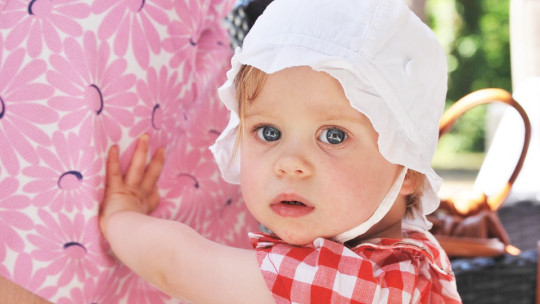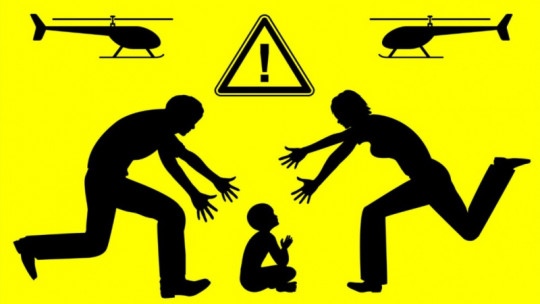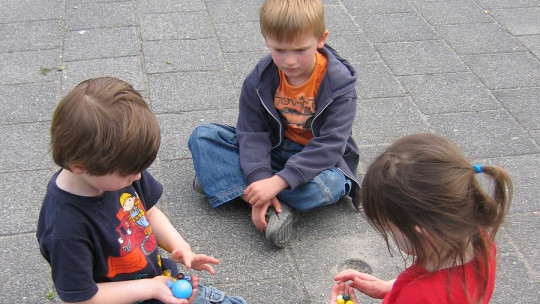
It is common for many children and young people to be rebellious and feel little attachment to social norms and responsibilities Many have an innate desire to explore on their own what the consequences of their actions are.
At an early age, many learn to fit into this society through “trial and error.” This way of living life can be considered normal, and many of these rebellious children grow up to be successful adults. This is part of its development.
Conflictive and difficult children
However, There are some situations in which these difficult children cause serious problems for their parents, with problematic behaviors that seriously damage the father-son relationship. They are tyrannical and authoritarian children, also known as toxic children. Despite their young age, they act as if they were leaders of the home, demanding, demanding and acting like true dictators.
The violent attitudes of children are often reflected in psychological attacks, insults and bad responses to parents. The family environment becomes a hostile context, with violent closing of doors, breaking of objects constant fights, destructive actions, etc.
Toxic children: characteristics and consequences for parents
But… What characteristics do these minors present in their behavior? How does his violent attitude and tyranny affect his parents? In the following lines you can find the answers to these questions.
1. Challenging attitudes
One of the big problems of toxic children is their challenging and provocative attitudes, which They are characterized by aggressive behavior towards parents and a violation of family norms and boundaries.
They always cross that line that marks discipline, without any form of respect. Their idea is to be contrary, with hostile and angry reactions.
2. Bossy and authoritarian
But these types of children not only respond to parents with unpleasant attitudes, but are also bossy and demanding. They have an authoritarian personality, which makes them uncompromising
They decide what and when they eat, what television channel they watch and, in short, they do what they want. If they do not achieve their goals, they scream, threaten and physically and psychologically attack their parents and become angry.
3. They are capricious
These minors are impulsive and their desires are usually the result of the whim of the moment They have a low tolerance for frustration and their hostile reaction can appear at any time.
Anything they crave is a breeding ground for a new conflict. Maybe they want to watch TV and ten minutes later play the console. They rarely do what their parents ask them to do and do their own thing. They need to satisfy those whims on the spot or a fight is coming.
4. They show a lack of empathy
They are children and young people with no social skills, and their maturational level of empathy is underdeveloped Empathy is the ability to put yourself in the other person’s shoes, and since you are unable to do this, you do not experience feelings such as love, guilt, forgiveness or compassion.
5. They are manipulative
In addition to being self-centered and having a low tolerance for frustration, toxic children are manipulative. They may behave this way in other environments, such as school, but there their demands are less taken into account.
On the other hand, in the context of the family is where they really know the weaknesses of their parents, whom they They constantly manipulate to achieve their goals
6. The main victim mothers
Although toxic children show aggressive behavior and challenging and aggressive behaviors with both parents, it is more common with mothers. Parents tend to be less victims of these events because they tend to be more afraid of them. Although this is not always the case, toxic children are often male.
7. Many times it is the parents who are responsible
Parents, as the main educational agents, are usually the main culprits in this situation. Although, in some cases, genetics can cause more conflictive personalities, Education can help this negative behavior to be minimized or, on the contrary, manifested
Education begins from the moment children are born, and parents must learn to set limits and help them develop healthy personalities. A consenting and conflictive parent can make a child toxic.
8. Recognizing the problem is essential to taking action
When a parent finds themselves in this situation, it is necessary to recognize that something is wrong, because the consequences of this war between toxic parents and children can only cause harm and suffering. When someone is aware of this situation, then it is possible to seek help. In some cases, going to a psychologist is the solution.
How to deal with a toxic child
Dealing with toxic children is not easy, because the family situation can become so toxic that it makes coexistence impossible The ideal thing is that children be educated from a young age so that they learn to be emotionally healthy and respectful adults.
If parents do not set limits or rules from the moment their children are born, then it is very difficult to change their behavior at older ages.
However, Parents can always carry out a series of attitudes and strategies that minimize the impact of this toxic behavior. and disobedient in pursuit of finding family peace. They are the following:
If you want to delve deeper into these tips and learn more. You can read our article: “Dealing with “difficult” and disobedient children: 7 practical tips”








